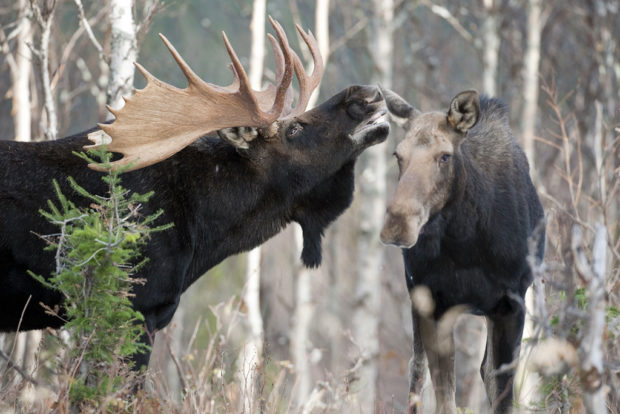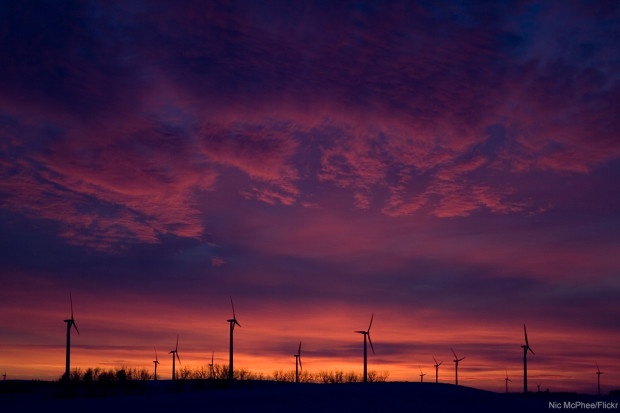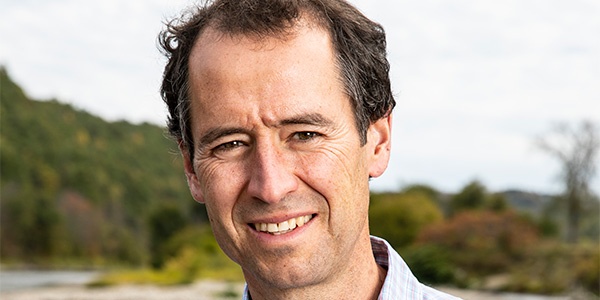We have much more to do and your continued support is needed now more than ever.
A Call to Action for Wildlife After the Paris Agreement Withdrawal
President Trump’s decision to withdraw from the Paris climate agreement is deeply disappointing, frustrating and, as National Wildlife Federation CEO Collin O’Mara stated, a “dereliction of duty.” But dwelling on disappointment will not achieve the needed actions that our climate, wildlife, children and future need.

Photo by Philippe Henry, National Wildlife Photo Contest
Fortunately, we can continue to accelerate the progress to avert catastrophic climate change spurred by Paris and show leadership in our states and communities. Already, over 1,000 state, city, county, business and university leaders have proclaimed to the world community that they are still committed to supporting climate action to meet the goals of Paris. Governors from Republican John Kasich of Ohio to Governor Jerry Brown of California have criticized this backwards looking retreat from the leadership Americans demand and deserve. Business leaders from Disney to Exxon Mobil to Tesla have objected to exiting this agreement. And this decision has drawn bi-partisan fire from members of Congress.
The future of wildlife is now in our hands. If we use this moment to double down on efforts to protect wildlife, build the robust and resilient economy of the future and push our elected officials at every level of government to unleash American innovation, we can achieve the progress we need to safeguard our future, our wildlife and our climate.
Here’s what you can do:
Make change at home. Every little step counts, and people learn from their neighbors. A lower carbon footprint home is a better home and a way to cut costs on energy while providing habitat for pollinators, birds, amphibians and other wildlife. Here are some ways you can make your home friendlier for the planet and wildlife:
- Create a backyard habitat for wildlife. Habitat areas can store carbon and help wildlife with warming temperatures.
- Garden and eat local. Gardening and supporting local agriculture reduces the emissions footprint of your food, can create needed habitat areas and often provides tastier, healthier meals.
- Carpool, bike, walk, and take public transport.
- Reduce, Re-use and recycle.
- Buy carbon offsets. These are easy to do and sometimes already offered on sites where you buy plane tickets and other items that result in carbon pollution emissions.
- Install energy efficient appliances. Energy efficiency can have a big impact for a small investment and save money over time.
- Use renewable energy. Many utility companies allow for you to choose where your energy comes from. Also, rooftop solar is increasingly affordable in many areas, sometimes at costs resulting in savings over your current electric bill.
- In fact, you can personally commit to adopting such practices as a way to honor the goals of the Paris climate agreement. For more information, check out the #IAmStillIn campaign.
Make change in your community. Cities, towns and states are leading the way in lowering emissions and safeguarding communities from the impacts of wildlife. Here’s what you can do to advance solutions for wildlife and the climate in your communities:
- Demand change from your local officials. Contact your local mayor, town and city council members, state legislative members, and governors to demand policies and projects that reduce emissions, create jobs and protect wildlife.
- Support local initiatives that protect wildlife and reduce emissions. This can include urban parks, support for public transportation, bike paths, river and other habitat restoration efforts, local and state renewable energy standards, community gardens, and initiatives that make it easier and more affordable for people to switch to responsible renewable energy sources.
- Support local and other businesses that use green practices. Many businesses are committed to reducing their emissions and protecting wildlife. You can direct your consumer dollars to businesses that build your community and do the right thing for wildlife.
- Speak up. Write letters to the editor, attend local meetings, talk to your kids’ classrooms, call into radio talk shows, talk to your neighbors. Your voice matters and people are listening.
Make change in Washington. Congress can and must take steps to protect wildlife, advance American innovation and jobs, and reduce our pollution. We must take actions to seize the opportunity the rest of the world is grabbing to build the economy of the future and protect wildlife, communities and people from the threat of climate change.
- Contact your Congressional members and urge them to stand up for the U.S. maintaining its commitments to the goals of the Paris agreement – namely, a climate safe for people and wildlife.
- Ask your Congressional members to support policies, like a price on carbon, which will drive down greenhouse gas pollution while pumping up jobs, economic progress and the future of wildlife.

Small steps can lead to big change. In order to protect wildlife and our communities from the worst impacts of climate change, we need to get moving. There’s no better time to act than now. Together, we can create the future wildlife and our kids deserve.






















